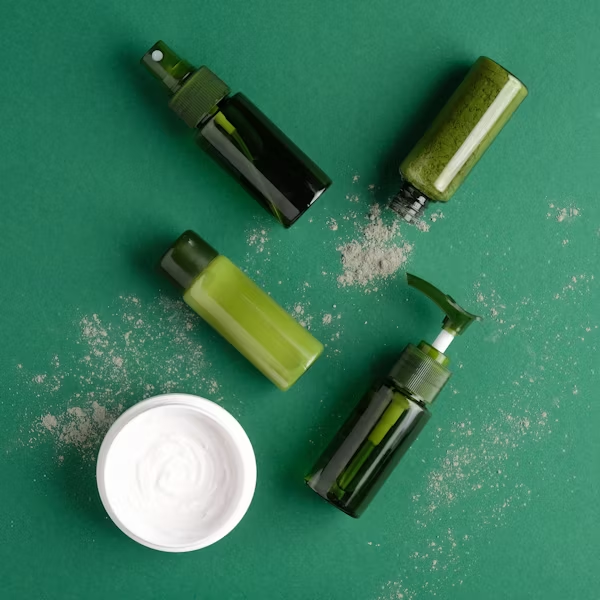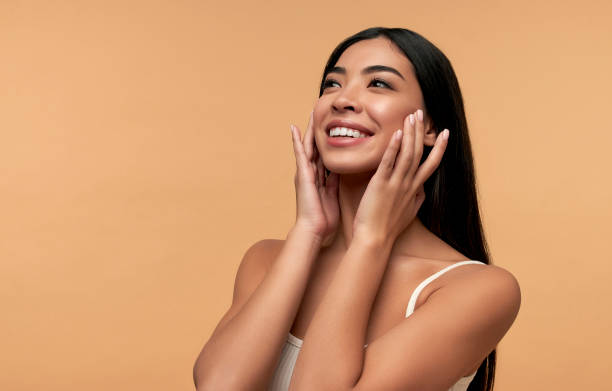Hair Products for Eczema: Scalp & Skin Flare-Ups
If you’ve ever noticed itchy, inflamed skin along your hairline, scalp, or forehead after using new hair products, you’re not imagining things. For people with sensitive or eczema-prone skin, haircare can be a hidden minefield.

Shampoos, conditioners, and styling products are often loaded with fragrances, preservatives, and harsh surfactants that can aggravate your skin—even if they don’t touch your face directly. So, can hair products trigger eczema? The answer is yes—and in more ways than you might think.
In this guide, we’ll explore how hair products can cause or worsen scalp and facial eczema, what ingredients to avoid, and what to do if your routine is leading to flare-ups.
Understanding Scalp and Forehead Eczema
Eczema, or atopic dermatitis, is a chronic condition involving a weakened skin barrier and overactive immune response. While it’s commonly seen in creases like elbows and knees, eczema can also affect:
- Scalp and hairline
- Forehead and temples
- Ears and behind the ears
- Neck and jawline
When eczema appears in these areas, it can be caused—or made worse—by irritants and allergens in your hair products. Even if you apply a product only to your hair, runoff during rinsing or residue on pillowcases can transfer ingredients to your skin.
The Link Between Hair Products and Eczema
The Skin Barrier Is Key
People with eczema have a deficient skin barrier—meaning it’s easier for irritants, allergens, and microbes to penetrate the skin and trigger inflammation. When harsh or reactive ingredients come into contact with already-vulnerable skin, flare-ups are more likely.
Hair Product Ingredients Matter
Many haircare products contain ingredients that are:
- Drying (like sulfates)
- Sensitizing (like fragrances and alcohols)
- Allergenic (like preservatives and colorants)
- Occlusive (like silicones and waxes, which trap heat and sweat)
These can cause contact dermatitis, which often mimics eczema—leading to redness, flaking, itchiness, and even blistering in severe cases.
Research Insight:
A peer-reviewed study published in Dermatitis found that hair care products are a significant source of contact allergens, particularly fragrances, preservatives, and surfactants, which can trigger or worsen eczema flare-ups in sensitive individuals (Warshaw et al., 2019).
Common Culprits in Haircare That Can Trigger Eczema
1. Fragrance (Parfum)
Often listed vaguely on ingredient labels, synthetic and even natural fragrances are one of the most common eczema triggers. They can cause flare-ups on the scalp, ears, forehead, and neck.
2. Sulfates (Sodium Lauryl Sulfate, Sodium Laureth Sulfate)
These foaming agents are effective cleansers—but too harsh for sensitive skin. They strip natural oils and disrupt the skin barrier, leading to dryness and irritation.
3. Preservatives (Methylisothiazolinone, Parabens, Formaldehyde Donors)
Preservatives prevent mold growth in products—but some are known allergens that can cause delayed hypersensitivity reactions.
4. Alcohols
Some alcohols (like ethanol or isopropyl alcohol) dry out the skin. Fatty alcohols like cetyl or stearyl alcohol are usually safe and even moisturizing.
5. Essential Oils
Lavender, tea tree, peppermint, and citrus oils may smell luxurious—but can irritate broken or sensitive skin and lead to delayed flare-ups.
Signs Your Hair Product May Be Causing a Flare-Up
You may not realize it right away, but your hair routine could be sabotaging your skin if you notice:
- Itchy, flaky, or inflamed scalp
- Redness or bumps along the forehead, neck, or ears
- Flare-ups that worsen after hair washing
- Stubborn facial eczema despite skincare changes
Symptoms may appear within hours or several days after exposure, especially if the reaction is allergic rather than immediate.
How to Protect Your Skin from Hair Product Triggers
1. Go Fragrance-Free and Sulfate-Free
Switch to a hypoallergenic shampoo and conditioner formulated without common irritants. Look for:
- “Fragrance-free” or “unscented” (not just “natural”)
- “Sulfate-free” or “SLS-free”
- “For sensitive skin” or “eczema-prone skin”
Brands like Vanicream, Free & Clear, or Eucerin offer haircare lines designed with these needs in mind. For more information about fragrance and eczema check out our blog post.
2. Rinse Thoroughly
Rinse shampoo and conditioner completely from your hair to reduce residue on the scalp, face, and neck. Be especially careful around the hairline and behind the ears, where runoff often collects.
3. Wash Your Pillowcases Frequently
Hair product residue can transfer to pillowcases and affect your face overnight. Wash pillowcases 1–2 times a week using a fragrance-free, dye-free detergent.
4. Keep Hair Off Your Face
During a flare-up, tie your hair back to reduce skin contact with product-coated strands. This is especially important after applying styling products like gels or leave-ins.
5. Avoid Heat and Occlusion
Hair dryers, hats, and heavy styling products can trap heat and sweat, which may exacerbate eczema. Stick to breathable styles and let hair air-dry when possible.
Treating Scalp and Facial Eczema Safely
If you’re dealing with eczema flares on your scalp or forehead, it’s important to:
- See a dermatologist for a proper diagnosis
- Use topical corticosteroids or calcineurin inhibitors as prescribed
- Maintain your skincare routine, focusing on gentle cleansing and regular moisturization
Avoid using harsh exfoliants, scrubs, or acne treatments on irritated facial skin—these often worsen barrier dysfunction in eczema-prone areas.
NellaDerm’s eczema-safe skincare is formulated to support the skin barrier while minimizing risk of irritation—ideal for flare-prone areas like the face and hairline.
Q&A: Hair Products and Eczema
Q1: Can natural or organic hair products still trigger eczema?
Yes. “Natural” doesn’t mean non-irritating. Essential oils and botanical extracts can be highly sensitizing, especially in eczema-prone skin.
Q2: Should I stop using all hair products during a flare-up?
You don’t have to—but simplify your routine. Stick to one fragrance-free shampoo, avoid styling products, and keep hair off your face until the flare subsides.
Q3: How do I know if it’s eczema or contact dermatitis from a hair product?
It can be difficult to tell. Both cause similar symptoms. A dermatologist can perform patch testing to identify ingredient allergies or sensitivities.
Final Thoughts
So, can hair products trigger eczema? Absolutely—especially when they contain harsh detergents, fragrances, or preservatives that disrupt the already fragile skin barrier of eczema sufferers.
By choosing gentler formulas, rinsing thoroughly, and keeping product residue away from the face, you can significantly reduce flare-ups on the scalp and forehead without sacrificing your haircare routine.
For barrier-supportive skincare to accompany your hair product detox, visit NellaDerm.com—your go-to source for eczema-safe solutions that calm, hydrate, and protect.
Our Promise to You
We’re confident our products will transform your skin—but if you’re not completely satisfied, we’ve got your back. Simple as that. Try our products risk-free for 30 days. If you don’t love your results, reach out to our care team and we’ll make it right with a full refund. No questions asked, no complicated returns process. Because everyone deserves skincare that works.

